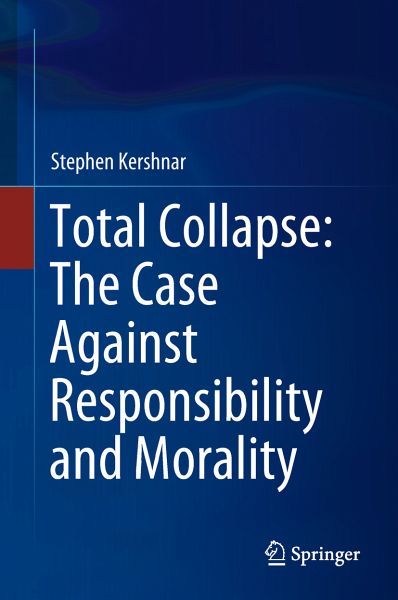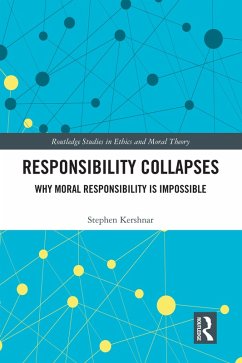
Total Collapse: The Case Against Responsibility and Morality (eBook, PDF)
Versandkostenfrei!
Sofort per Download lieferbar
72,95 €
inkl. MwSt.
Weitere Ausgaben:

PAYBACK Punkte
36 °P sammeln!
The first book to deny that people are morally responsible and that morality exists and to connect these two claims.
Relates moral responsibility to foundationalism, internalism, and rights.
Tightly organized, concise, and accessible.
Dieser Download kann aus rechtlichen Gründen nur mit Rechnungsadresse in A, B, BG, CY, CZ, D, DK, EW, E, FIN, F, GR, HR, H, IRL, I, LT, L, LR, M, NL, PL, P, R, S, SLO, SK ausgeliefert werden.












